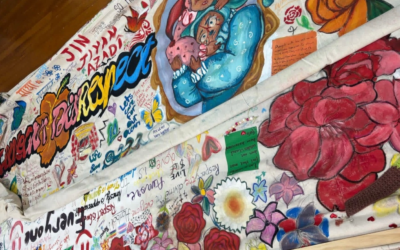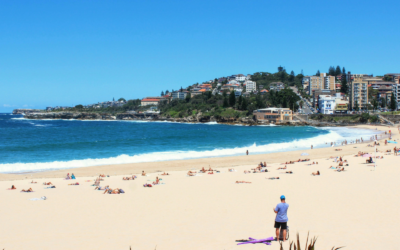(Front cover of ‘A Different Kind of Power’ by Jacinda Ardern. Photo credit: Natasa Aster-Stater, 2025)
Reading this memoir made it clear that Jacinda Ardern has been one of the people that she is trying to serve. She isn’t from a dynasty like the Kennedys or the Clintons. Her story feels authentic, like that of an “average” person. In a culture that puts celebrities on pedestals, it is fascinating to see that someone with so much power had origins that were just as mundane as yours or mine. While I haven’t read Barack Obama’s memoir, I have read Michelle Obama’s ‘Becoming’, which elicited similar feelings of curiosity, as I learned about an experience that is so far removed from my own, especially in the political sphere.
Seeing how a person’s upbringing influences their decisions in adulthood, though perhaps predictable, was nevertheless satisfying. Ardern’s experience in public speaking and political participation in her youth helped shape her journey to becoming the Prime Minister of the New Zealand Parliament. Unfortunately, my knowledge on the history of New Zealand is limited, but seeing her acknowledge the devastating effects colonialism has had on the Indigenous populations and countries of the world commands respect. This acknowledgement feels even more significant considering the role that governments have played in perpetuating the persecution and subjugation of Indigenous and First Nations Peoples in their legislation.
Her story evokes hope and gratification by virtue that she is not the first woman to reach the heights she’s achieved. She acknowledges that by seeing multiple women fill the Prime Minister position, there is a sense of camaraderie relief in knowing that you don’t have to be the trail blazer. This is not to say that she hasn’t faced her fair share of challenges, criticisms and belittlements as a result of her gender. But what I think makes her circumstances exceptional are that the cruelty and unfairness she faces, ironically serve as proof that she is capable, intelligent and strong.
Her prose is clear and sharp. I wonder how she validates that the events that happened did so in the way that she recalls, noting that memory is such a malleable and dynamic thing. While bias is impossible to eradicate, especially when writing something as personal as a memoir, Ardern’s tone positions herself as someone that many of us could be. Someone from a family who’s had their fair share of struggles, illness, death, joy and dreams. I particularly respect her candour when she discusses her faith. It shocked me to learn that Ardern’s parents were Mormon, her father growing up with the religion and her mother converting to it when they met and married. She finds a lot of beauty and comfort within the community and the simplicity of morality being decided by clear-cut set of rules.
However, the purpose of a memoir is to reveal some otherwise unknown or intimate information about the subject. And the way that Ardern divulges the dissonance she faces as she grows between her religion and her other beliefs is something many could relate to. Her religious discord isn’t the only tumultuous topic that she delves into, and she uncovers the difficult balance between parenthood and leadership with her infertility struggles.
Ardern states that she sometimes feels out of place in the world of politics because her empathy and sensitivity may be construed as weakness. But she is timely reminded by her peers that those qualities are exactly what makes her most suited for her position. These were the qualities that she needed to exert strength in the face of tragedy and her poise, understanding and action following the Christchurch terrorist attack of March 15th, only deepened my esteem of her. She not only joined in and allowed space and time for the mass grieving but took swift and decisive action by implementing gun reforms within only 10 days of the attack.
Of course, there are many more hurdles she must overcome during her time in Parliament. But it is clear that every decision she makes is grounded in a desire to leave the world better than she found it. Seeing a leader who genuinely has people’s best interests at heart is especially needed during a time where world leaders such as Trump and Netanyahu have seemingly not only failed to improve the lives of the people that they are meant to serve, but also actively harmed others.
Ardern’s story is, in many ways, ordinary, and the banality of her life is matched in equal parts by the extraordinary. She is a reminder that collective change and institutional progress is possible for any one of us.



